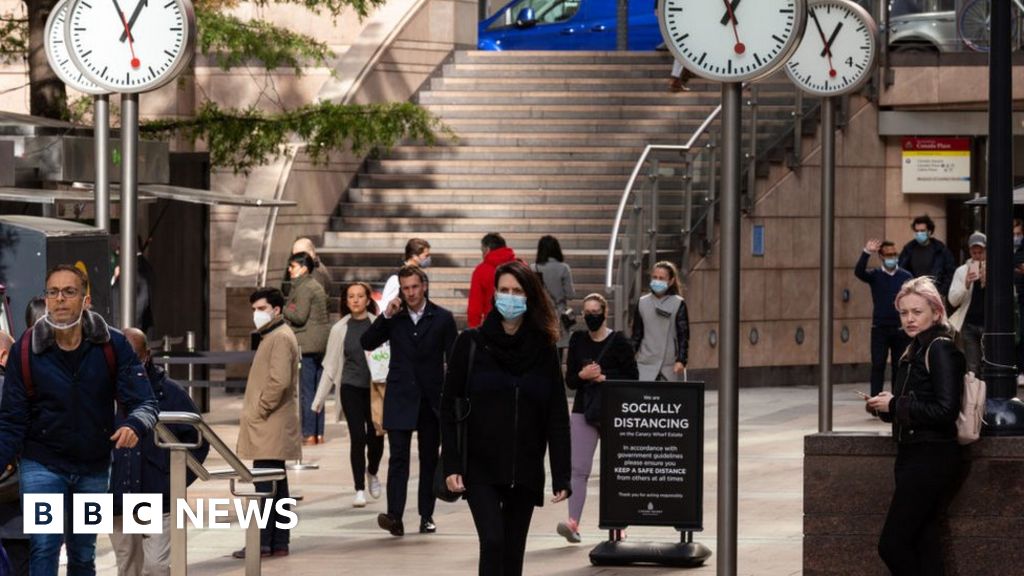image courtesy of Getty Images Boris Johnson has stated that workers would be able to return to work after the Covid limitations expire on July 19th. The government’s recommendation that people who can work from home should do so is coming to an end, along with other restrictions. Some businesses expressed interest in “seeing our magnificent towns and cities fill up again.” The lifting of limits, however, “shouldn’t herald a mass return to workplaces,” according to the CIPD, a human resources organization. Since the initial lockdown in March of last year, many office workers have worked primarily from home. The advice altered momentarily in August of last year, when the virus’s prevalence was low and the government sponsored an ad campaign to get people back to work. Almost all Covid restrictions are anticipated to be lifted in two weeks, and employers will have to decide whether or not their employees should report to work. The majority of Covid laws are due to expire in England, according to PMBank’s CEO, who claims that employees are more productive in the workplace. How do you feel about returning to work? According to the Centre for Cities think tank, the number of people returning to work in the UK’s main towns and cities is still a fifth of what it was before the pandemic. The lack of people working in offices, according to Paul Swinney of the Centre for Cities, has been a “huge issue” for stores, cafes, and pubs that used to rely on office employees for sales. “While the adjustment to the ‘back to the office’ guidance would undoubtedly benefit them, it remains to be seen how many workers will return now that the limits have been loosened,” he said. The loosening of office-working laws was “very much welcomed,” according to David Abrahamovitch, founder of Grind coffee shops. He previously stated that the four-week delay in lifting the restrictions “killed the summer” for his London coffee shops, which relied on commuters for revenue. “We’re excited to see more people return to the city,” he said. “I hope that many firms will follow Apple’s lead and require employees to return to work at least three days every week.” DavidAbrahamovitchDavidAbrahamovitchDavidAbrahamovitchDavidAbrahamov Almost all of the UK’s largest businesses have already informed the BBC that they do not intend to bring employees back to work full-time. Some 43 of the companies stated they would welcome hybrid working, which is a combination of home and office work in which employees are encouraged to work from home two to three days per week. Different working methods are being used by major metropolitan banks. Goldman Sachs has informed employees to expect to return to work in July, while NatWest’s new working paradigm could result in only 13 percent of employees working full-time. A return to work, according to Peter Cheese, chief executive of the CIPD, should be “left to individual organizations speaking with their staff to agree working arrangements.” “‘Freedom Day’ should not signify a mass return to work,” he continued, “but it may indicate the beginning of increased freedom and flexibility in how, when, and where individuals work.” image courtesy of Getty Images Regardless of the revisions in recommendations, Mr Cheese believes that companies should continue to implement measures that “give workers confidence that their workplace is safe,” such as spreading out desks and implementing one-way systems. “Businesses shouldn’t rush back to the way things were because we now have experience and evidence that things can be done differently,” he said. “People like a combination of office and home work. Wherever possible, employers should endeavor to understand and support employees’ preferences for more flexible working arrangements, while also satisfying the demands of the company.” Knight Frank’s Alistair Elliott, a senior partner, said the estate agency “wholeheartedly” welcomed the removal of the working from home guidance. “While this was critical at the start of the pandemic, we are looking forward to seeing our wonderful towns and cities fill up again, delivering all of the benefits that the greatest collaborative workplaces produce,” he added. Businesses would appreciate the ability to expand their capacity or “kickstart their preferred future ways of working plans,” according to Richard Burge, chief executive of the London Chamber of Commerce and Industry. “This is incredibly significant for London, and it’s another ‘open for business’ sign on the front door,” he added. Mr Burge, on the other hand, said he wanted “clarity surrounding face covering usage” on London’s public transportation system. “Commuter and visitor confidence in public transportation is essential,” he said. copyright to the image Shah Qureshi is a Pakistani politician. According to Shah Qureshi, partner and head of employment at law firm Irwin Mitchel, “the answer is yes” – your employer can tell you to work from home. Mr Qureshi points out, however, that under the Health and Safety at Work Act, “employers have an obligation to guarantee that there is a safe working environment, a safe workplace, to which an employee returns,” regardless of whether the restrictions are lifted on July 19. Although all coronavirus limitations are expected to stop on July 19, firms may still take steps to ensure their offices are safe, such as spacing desks out, implementing one-way walking systems, and providing enough sanitary facilities. “Where an employer requires you to return to the office, and your typical workplace is the office, there is a duty of care that the employer has to ensure that everything is safe as far as practicable,” Mr Qureshi explained. “The employer’s duty of care still exists and has always existed,” he stressed. Mr Qureshi went on to say that, under present law, employees have no legal right to work from home. Work-life balance is important. Pandemic of Coronavirus Vaccines against the Coronavirus/n
Read MoreBack to the office in two weeks’ time, says PM
2021-07-05T17:41:40-04:00July 5th, 2021|





